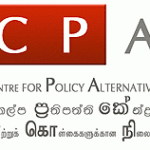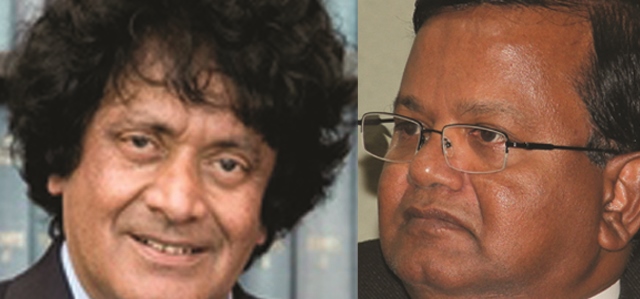[The legal opinion of Professor Suri Ratnapala commissioned by the Bar Association of Sri Lanka adds weight Mr Silva’s interpretation ]
-
STATEMENT ON THE LEGALITY OF THE PROPOSED THIRD PRESIDENTIAL TERM by CPA
23 October 2014, Colombo, Sri Lanka: It has been strongly suggested by government sources in recent days that there is to be an early presidential election in January 2015. In this connection, there has been public discussion whether or not President Mahinda Rajapaksa is legally entitled, under the terms of the Eighteenth Amendment to the Constitution, to seek a third term. It has been widely assumed following the abolition of the presidential two-term limit by the Eighteenth Amendment that President Rajapaksa would seek a third term at some point.
However, the former Chief Justice, Sarath N. Silva, P.C., has strongly argued that President Rajapaksa is legally disqualified from seeking re-election. He has argued that in terms of the principles of interpretation set down in the Interpretation Ordinance 1901 (as amended), the Eighteenth Amendment should have made the abolition of the term limit applicable to the incumbent president by express words. In the absence of such express words, he further argues, President Rajapaksa became disqualified immediately upon being re-elected for his second term in January 2010. The weight of academic authority has been added to Mr Silva’s interpretation by the written legal opinion of Professor Suri Ratnapala of the University of Queensland commissioned by the Bar Association of Sri Lanka.
The government and commentators writing in support of its position maintain that there is no legal prohibition or restriction on President Rajapaksa seeking a third term or his decision to call an early presidential election. Their position is that the provisions of the Eighteenth Amendment are clear in their favour on both these issues. It is possible that the Supreme Court may be moved in the coming days, by way of a presidential reference or by an individual application, for a determination of these constitutional issues. It would be crucial for the Supreme Court to demonstrate its independence, impartiality, and integrity to the highest international standards given the political sensitivity and constitutional significance of these issues.
Having considered the views expressed in the public domain, CPA firmly believes that the position advanced by Mr Silva and Professor Ratnapala is more persuasive on the legal merits. We do not believe that those supporting the government’s position have adequately answered the issues raised by Mr Silva and Professor Ratnapala.
Our position therefore is that notwithstanding the abolition of the term limit by the Eighteenth Amendment in September 2010, President Rajapaksa remains disqualified by virtue of the unrepealed Articles 31(2) and 92(c) applying to him at the time of his second election in January 2010. In the absence of an express provision in the Eighteenth Amendment specifically or generally including the incumbent president within its terms, relevant provisions of the Interpretation Ordinance, which are themselves principles developed by the common law over a long period of time and are part of the general principles of the Sri Lankan legal system, operate to deny retroactive application of the Eighteenth Amendment. For these reasons, the incumbent president, as well as any other person twice elected to the office of president prior to the Eighteenth Amendment, remains disqualified.
If this is the true legal position with regard to the relevant constitutional provisions, a potential constitutional crisis is created if President Rajapaksa nonetheless seeks re-election in January 2015 without an authoritative settlement of the doubts. If he is re-elected in such a context, moreover, persistent questions about the legality and legitimacy of his position would also inevitably follow. Needless to say, it is undesirable for such doubts to attach themselves to the office of the President of the Republic.
—
 The Centre for Policy Alternatives (CPA) was formed in the firm belief that there is an urgent need to strengthen institution- and capacity-building for good governance and conflict transformation in Sri Lanka and that non-partisan civil society groups have an important and constructive contribution to make to this process.
The Centre for Policy Alternatives (CPA) was formed in the firm belief that there is an urgent need to strengthen institution- and capacity-building for good governance and conflict transformation in Sri Lanka and that non-partisan civil society groups have an important and constructive contribution to make to this process.
